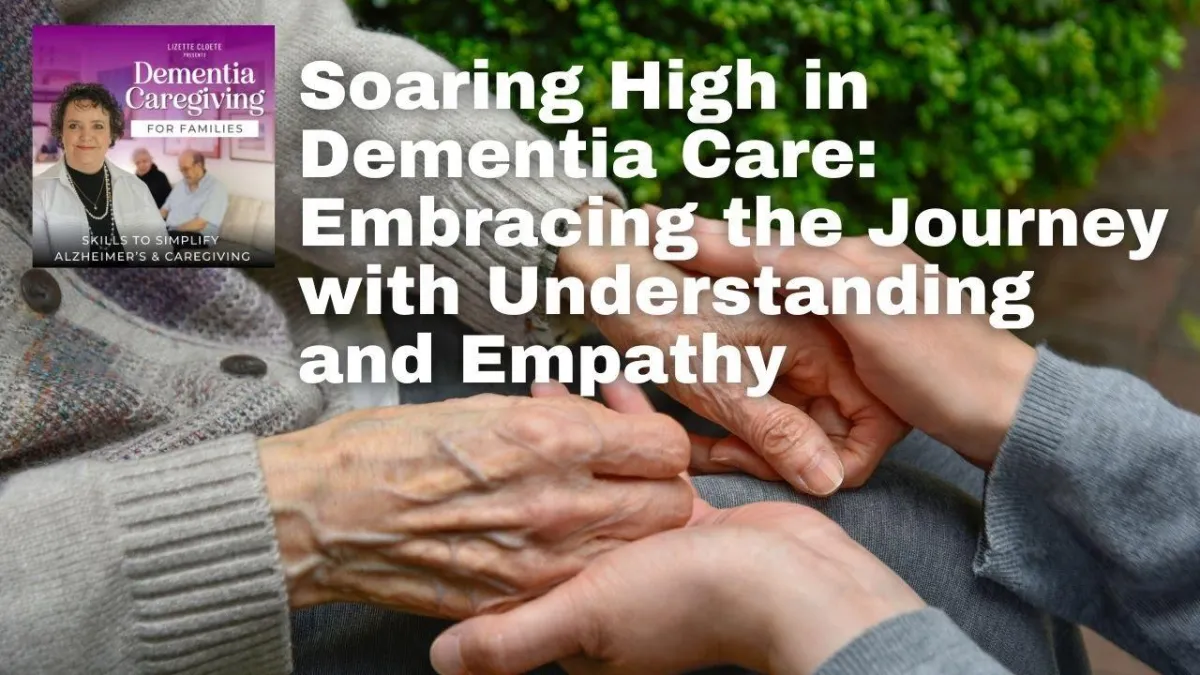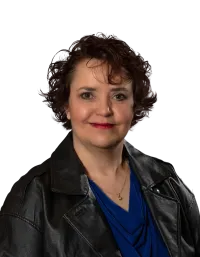The Baffled Brain Podcast: Demystifying Dementia

Soaring High in Dementia Care: Embracing the Journey with Understanding and Empathy
Are you looking for an insightful way to grasp the complexities of dementia care?
In an innovative approach, this episode introduces the airplane analogy to demystify dementia care. Imagine dementia care as an airplane journey, where every part of the plane represents a different aspect of the condition and care strategies
This analogy serves as a unique tool to break down and understand the multifaceted nature of dementia.
0:01:12 Recap of the airplane analogy for understanding dementia
0:02:35 Exploring the engines and developmental processes related to dementia
0:03:14 Understanding the wings and creating lift in dementia care
0:03:31 Occupational Therapy and Slats: Understanding Dementia
0:04:17 Introducing Elevators: Spiritual Care and Self-Care
0:06:42 Importance of Spiritual Care and Self-Care Strategies
0:10:08 Prioritizing Self-Care in the Dementia Journey
0:11:12 Using the Airplane Analogy for Self-Care Strategies
0:12:27 Nurturing and Educating in the Think Different Dementia Group
Understanding Dementia Through Different Components
Just like an airplane, dementia care involves various components that work together. The body of the plane symbolizes the physical aspects of dementia, including the medical and day-to-day care needs. The cockpit represents the control center, akin to the cognitive challenges faced by individuals with dementia. Engines are the driving force, much like the support systems and resources essential in dementia care.
Elevators of Care: Balancing Spiritual and Self-Care
The podcast highlights spiritual care and self-care as crucial elements in managing dementia. Likened to the elevators of an airplane, these aspects provide balance and stability in the caregiving journey, ensuring the well-being of both the caregiver and the person with dementia.
Nurturing a Supportive Community
Creating a supportive community is emphasized as a key factor in enhancing dementia care. This involves sharing experiences, resources, and strategies, much like passengers and crew on an airplane sharing a common journey. This collaborative approach fosters a sense of solidarity and shared purpose among caregivers and families.
The Power of Education and Empathy
Educating oneself about dementia is vital. The podcast encourages listeners to learn and empathize, enhancing their ability to provide effective and compassionate care. Understanding the unique challenges and experiences of those living with dementia is essential for providing support that truly makes a difference.
Conclusion
This episode, with its unique airplane analogy, offers a new perspective on dementia care. It encourages caregivers and families to view dementia care as a journey that, while challenging, can be navigated successfully with the right understanding, tools, and community support.
By embracing this innovative approach, caregivers and families can better manage the intricacies of dementia care, ensuring a more positive and effective caregiving experience.
https://podcasts.apple.com/us/podcast/dementia-caregiving-for-families/id1716187550
Book a Call with Lizette
https://www.dementiacaregivingmadeeasy.com/book-a-call-meeting-with-lizette
Are you helping someone you love with dementia?
The First Thing You Need To Know Is... You Are Not Alone!
Join our FREE workshop here: https://www.dementiacaregivingmadeeasy.com/wsl
Join our Facebook Group at: https://www.facebook.com/groups/1301886810018410
Transcript
Introduction to "Demystifying Dementia"
[0:06] Welcome to the Baffled Brain, Demystifying Dementia, your daily podcast that will teach you everything you need to know about dementia.
At Think Different Dementia, we know that dementia seems complex and challenging to manage, but we also know with the right tools at the right time, dementia is made simple.
I am your host, Lisette Kruter from Think Different Dementia, where we believe you're only one technique, the right technique, away from thriving and not just surviving your dementia journey.
Together, Thriving in the Dementia Journey
[0:39] So please like this video, please subscribe to the podcast, and please share these videos with your friends and families so that we, together, can thrive and not just survive your dementia journey.
So welcome to today's program. program.
[0:59] Well, welcome, welcome back, welcome back.
It is, today it is October the 29th, and what a wonderful guest we had yesterday.
Thank you so much for being on the program.
Recap of the airplane analogy for understanding dementia
[1:12] Today is episode 53 of The Baffled Brain, Demystifying Dementia, and we're going to do a quick little recap before I get into today's program.
We started a new format around the 16th of October, where I've been going over the analogy of an airplane to help us understand and make dementia simple.
And today's episodes can probably be a little shorter. So I thought I would recap things real quick for everybody.
We talked about how the first part of the plane was the body of the plane, that there was a cockpit, a cabin and cargo, that in the cockpit, we have the the pilot and the co-pilot, and how that relates to dementia.
We talked about the cabin. Inside the cabin, we have the passengers and who the passengers are and where they belong in this journey, how they can help us, how they can hinder us if we don't have the right people in the cabin.
We talked about the cargo or the baggage that's inside the airplane.
[2:15] That's inside the baggage hold, which includes dementia, the dementia process, staging of dementia. All of those different types of things.
I've had a couple of guests on and one was my sister, where we talked about a couple of different things there too, and how to think differently about dementia.
Exploring the engines and developmental processes related to dementia
[2:35] We've also gone into, you know, how the, The engines work, what the engines are, how it moves the plane forward, the right engine, the left engine, being developmental processes, both cognitive and physical, and how that relates to dementia.
We've also looked at what stabilizes a dementia plane, what the stabilizers are, how we can control things, and how to look at turbulence and try to minimize things that cause turbulence in a person with dementia's life.
Understanding the wings and creating lift in dementia care
[3:14] We have looked at the wings on the airplane, what creates the lift on the plane, using the nuts and bolts of a therapy world to make it easier, giving us lift in the process.
Occupational Therapy and Slats: Understanding Dementia
[3:31] We're going to continue to unpack those in the several next weeks and months.
I started with some occupational therapy strategies just because that's where I am. That's the world I live in.
And then we talked about the slats.
What are the slats? How do slats work in creating lift during takeoff and landing to prevent lift and drag in the process of takeoff and landing?
And what I put in that part of it is some things like gizmos and gadgets, and we're going to continue to expand the repertoire.
We're going to continue to add things into each of these different sections as I continue to develop this analogy over time to make it easier for people to understand dementia.
Introducing Elevators: Spiritual Care and Self-Care
[4:17] Which brings us to today's episode, and thank you for being here today.
We have two more of these introductory videos, and then we will be back a little bit more in a question-answer format, like I said.
With guests, once a week I'm going to add guests, and we're going to continue to expand and grow this over time because it is a time-based process, right?
[4:44] So today we're going to talk about elevators. And I'm not talking about the elevators that take you up and down in a building, even though they probably do the same thing.
We're going to talk about the elevators of a plane.
What are the elevators? It helps bring things up and down. And so in this section, I added for people for people's benefit.
What I what I put in here are two things.
I put in spiritual care and I put in self-care. Okay.
So both of these things can change our direction either up or down.
And I am open that I am a Reformed Christian.
That is my worldview, that all of my questions I have to answer from my background and from my belief system.
And I'm never saying these things to be insensitive.
It's just what I believe. Everybody believes something.
And we all believe different things.
[5:47] Even if you believe differently from me, that doesn't mean that I'm not open to talking to you about it.
I'm just open about the fact that I come from a Christian worldview and that my worldview is always going to color the questions that I answer and how I answer the questions.
So never meant to be offensive, but meant to be educational.
And I'm at least open about the fact of where I come from.
So if you differ with me, I beg you to not consider leaving just because I say something that is different than what you believe. leave.
The information I share is always shared out of a perspective of love, a love for my neighbor and a love for people with dementia.
So what do I include in the elevators?
Importance of Spiritual Care and Self-Care Strategies
[6:43] And the reason I bring up my background regarding my faith, because it is my faith, right, is because spiritual care is part of the elevator in my dementia journey, my flight, my analogy.
And I've also included self-care and self-care strategies.
But spiritual care is vastly important.
We are created beings. We all have a beginning.
[7:13] We are finite from the perspective of we have a starting point. God is eternal.
He has always been. But all of us have a beginning in time.
My beginning in time is the 19th of September, 1970, at whatever time of day I was born.
So I have a beginning, but we all are created beings that have a never-dying soul.
And so our spiritual care is extremely important in this dementia journey in this process that we are on and everybody has a never-dying soul regardless of what a person's belief system is the bible teaches that all of us have a never-dying soul and so spiritual care is extremely important to me in keeping my own health and abilities, but in everyone when we are working with people with dementia.
[8:15] Then the other side of this is self-care strategies.
And I started with spiritual first because I think that is the more important part of it.
If you take care of your spiritual being, your self-care follows.
[8:31] In self-care strategies, we will talk about pragmatic self-care strategies, things like breathing techniques and how to build in respite and how to take care of yourself and how to get your siblings on board and how to, you know, where to look for all of the different types of resources for your own self-care strategies.
[8:57] Because if you don't take care as a care partner in this journey on this dementia flight, if you don't take care of yourself as the person helping someone with dementia, then you are going to burn out.
And this falls so well into my analogy, and I've used it before in a lot of my other broadcasts before I changed to this format, that when you've ever been on an airplane and the airplane, the ladies in the front, the gentlemen to the people who are giving us the instructions, the flight attendants with the safety cards always say, what did they say?
If the airplane is getting ready to go down and the oxygen masks fall from the ceiling and you are flying with a person who requires care, what are you supposed to do?
Do you put it on the person who needs care first or do you put it on yourself and why?
You put it on yourself first. And the reason for that is because people...
Prioritizing Self-Care in the Dementia Journey
[10:08] If you put it on the child or the person who needs help first, and they cannot help you, then if you haven't had enough time to put it on yourself, you're toast.
And so you always have to take care of yourself first. You only can give out of abundance.
And so when we're helping people with dementia, when we're care partners in a long journey, because it's a marathon, guys, it's not a sprint. It is a marathon.
We have to build in these self-care strategies from the beginning.
We have to teach you from the beginning to put your own safety, your oxygen mask on first.
[10:52] And we do this through self-care strategies. And self-care strategies are extremely important in the dementia journey.
Respite care, how to find respite care, what kinds of ideas.
Is. We'll get people on talking about hospice and palliative care and all of these different types of things. We're going to talk about spiritual care.
Using the Airplane Analogy for Self-Care Strategies
[11:12] We're going to talk about all of these things that I include under the elevators, under the elevators in how to keep things stable as we're moving up and down in this journey so we don't have a lot of turbulence.
[11:30] And so we are We're almost at the end of the introductory series, for lack of a better word, of why I use the analogy of an airplane to teach people self-care strategies and spiritual strategies and strategies on managing challenging behaviors and all of these different pieces of the airplane.
[11:57] And I love that you guys are here.
Thank you for joining me. Please like, share, and subscribe to my YouTube channel called Think Different Dementia. Please like, share, and subscribe to the Baffled Brain Demystifying Dementia on whatever podcast platform you're on.
And please like, share, and join my Facebook group called Think Different Dementia Education Group, where my sole purpose is to nurture people, to dialogue with people.
Disclaimer: These blogs, videos and any work done by Lizette Cloete OT, as a Member of Think Different Dementia, LLC, is given only as educational content and consulting work. This does not create an Occupational Therapist-Patient Relationship. The educational content and consulting work performed should not be considered medical treatment as an Occupational Therapist. The consulting work does not take the place of medical work normally performed by a licensed Occupational Therapist. Please consult a licensed Occupational Therapist for medical advice.
“Think Different” Dementia’s owner, Lizette Cloete, OTR/L graduated as an Occupational Therapist from the University of Pretoria in South Africa in 1992. She and her husband emigrated to the USA in 1993, and currently reside in South Carolina. They have 2 daughters and one son-in-love, 4 cats, one dog and 16 chickens.
Lizette has almost 30 years of experience as an Occupational Therapist in a variety of settings, the latest being in the home health environment. Among her many accomplishments, she served on the South Carolina Occupational Therapy Association’s Board of Directors from 2008-2014. She enjoys teaching on the topic of dementia, most recently presenting at a national conference on the topic “Dementia Made Simple”

NAVIGATION
Contact Us
lizette@thinkdifferentdementia.com
© Copyright 2023. "Think Different" Dementia, LLC. All rights reserved.

